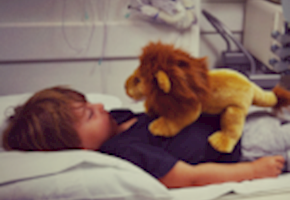Many parts of the U.S. are experiencing an outbreak of a respiratory illness that has sent hundreds of children to the hospital. The Centers for Disease Control and Prevention (CDC) has tested a number of these cases and found they were a type of enterovirus called EV-D68, a virus that has been previously reported to cause severe disease in a few individuals.
EV-D68 is not new. It was first isolated in 1962 but has been rarely reported since then. Enteroviruses of various types cause about 10 to15 million infections each year in the US, usually in the late summer or early fall. This year's outbreak includes a new type that has been associated with many cases throughout the US causing unusually severe respiratory disease in some children.
How are enteroviruses spread?
Enteroviruses are spread by close contact with an infected person. You can also become infected by touching objects or surfaces that have the virus on them and then touching your mouth, nose, or eyes.
How are enteroviruses treated?
The vast majority of children with enteroviruses such as EV-D68 have mild symptoms and do not need any medical care beyond what is done for the common cold. A number of children with asthma and even some without a prior history of wheezing have had unusually severe cases of EV-D68 resulting in hospitalization; some requiring treatment in the intensive care unit.
Children with high fever and those with sever cold symptoms should call our office. Those with difficulty breathing should seek care urgently.
New information about EV-D68:
The CDC is currently searching for any links between this outbreak of EV-D68 and new complications seen in some children who are experiencing arm and leg weakness. Note that doctors have not yet confirmed a link between EV-D68 and these symptoms. More information on this development will be shared as it becomes available. Children with arm or leg weakness should seek emergency care.
New, Faster Lab Test for Enterovirus D68
The Centers for Disease Control and Prevention (CDC) has developed and started using a new, faster lab test for detecting enterovirus D68 (EV-D68) in specimens from people in the United States with respiratory illness. This test will allow CDC to more rapidly test for EV- D68. While this has been a big year for EV-D68 infections, CDC expects the number of cases to taper off by late fall.
Important information for children with asthma:
This virus seems to be particularly hard on children's lungs. Therefore, it is especially important for children previously diagnosed with asthma to follow their asthma action plans and communicate with their primary care provider to know what to do if they get into a yellow or red zone.
Although no children should be exposed to secondhand smoke , it's important to prohibit smoking in homes where children with asthma live.
How to reduce the risk of infection with enteroviruses:
To reduce the risk of infection with enteroviruses:
- Wash hands often with soap and water for 20 seconds, especially after changing diapers.?
- Avoid touching, eyes, nose, and mouth with unwashed hands.
- Avoid kissing, hugging, and sharing cups or eating utensils with people who are sick.
- Disinfect frequently touched surfaces, such as toys and doorknobs, especially if someone is sick.
- Stay home when feeling sick, and consult with your health care provider.
Remember, enterovirus is different from the flu!
Flu season is just around the corner. To protect against the flu virus, the American Academy of Pediatrics recommends all children ages six months and older be get their flu vaccine at the earliest possible time.
Article Coutesy of Tenafly Pediatrics, P.A.,







Add A Comment
Thank you for your comment.
Sorry! There was a problem with your comment submission. Please try again.
Comment
Allowed HTML: <b>, <i>, <u>, <a>
Comments
Thank you for your comment.
Sorry! There was a problem with your comment submission. Please try again.
Thank you for your comment.
Sorry! There was a problem with your comment submission. Please try again.